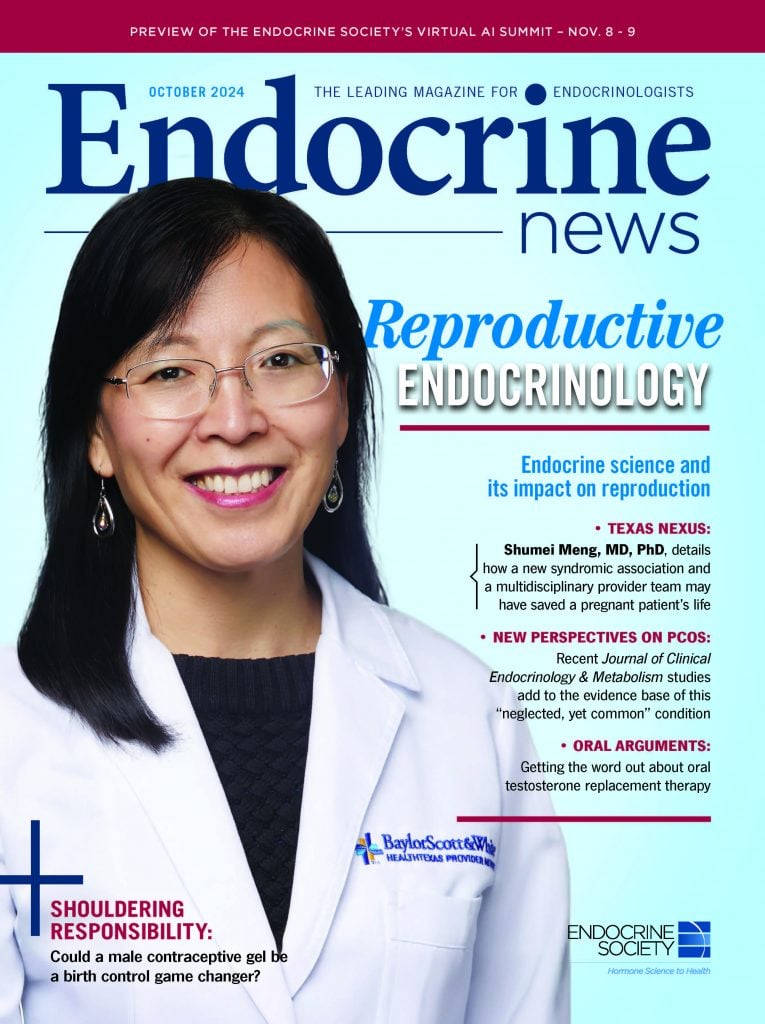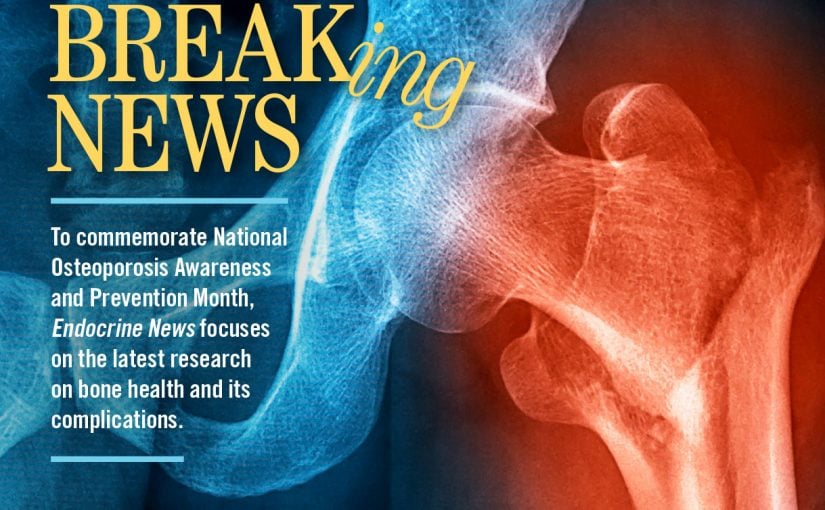
This month’s focus is in an area that has actually been in the mainstream media quite a bit in the last few years: reproduction. However, of course we are putting our own endocrine-focused spin on it with several stories about the impact endocrine science has made on human reproduction.
For our cover story, “Texas Nexus: A Multidisciplinary Healthcare Team Finds a Lifesaving Link Between Research and Clinical Practice,” Kelly Horvath talked to Shumei Meng, MD, PhD, from the Baylor University Medical Center and the Texas A&M School of Medicine, who discusses a remarkable case study published in JCEM Case Reports. The case detailed how endocrinologists, working with several other specialists on a variety of teams, may have discovered a new syndromic association that may have saved a pregnant patient’s life. However, Meng credits the Endocrine Society for playing a large role in helping practitioners more easily connect research to patient care. “For any scientist or physician, I don’t think at any moment we feel like we know enough,” Meng says. “But the point of scientific curiosity and research is bringing that knowledge to patient care. It’s making an impact on patients’ lives. That’s exactly what the [Endocrine] Society has done. You have to link the research to the clinical practice to make that impact.”
In “Shouldering Responsibility,” Senior Editor Derrek Bagley looks at research presented at ENDO 2024 that could be a game changer in the world of contraception. While there have been several false starts through the years about the latest male birth control, this one does indeed show promise. This contraceptive gel applied to the man’s shoulders — hence the article’s title — has been shown to suppress sperm production faster than other hormone-focused methods of male birth control. The gel contains both segesterone acetate and testosterone and could finally be the solution many couples have been seeking.
Another article also focuses on male reproductive health, at least as it pertains to testosterone replacement therapy (TRT). In “Oral Arguments,” Kelly discusses an ENDO 2024 presentation that looks at the viability of an oral version of TRT that could possibly replace injectable and gel versions, often considered less than optimal by both patients and providers. Adrian Dobs, MD, professor of medicine and oncology at Johns Hopkins School of Medicine in Baltimore, Md., presented the results of a survey that polled more than 300 physicians, seeking their perspectives on barriers to effective TRT treatment, among other points of interest including prescribing preferences and unmet patient needs. “As physicians, sometimes we’re really quite blinded to the fact that there are obstacles to patients,” Dobs explains. “In reality, there are several problems that cause them to switch to other testosterone products. Sometimes, its insurance, sometimes its tolerance — injectables are painful; gels are messy. That was an important finding.”

Eric Seaborg looks at some recent studies from The Journal of Clinical Endocrinology & Metabolism that have recently added to the evidence base of polycystic ovary syndrome (PCOS) in “New Perspectives on PCOS.” With nearly one in 10 women dealing with PCOS, it has become one of the leading causes of infertility among women of child-bearing age, and research seems to indicate that PCOS diagnoses are on the rise. While the reasons for this increased incidence are up for debate, according to Richard S. Legro, MD, chair, Department of Obstetrics and Gynecology, Pennsylvania State College of Medicine, Hershey, Pa., and who chaired an Endocrine Society committee that published a PCOS guideline in 2013, he added that a “broader diagnostic criteria probably increased the incidence, and there has also been greater public and medical awareness of the disorder. Nonetheless, as the authors note, the disorder is still likely underdiagnosed in the population.”
We’re also giving you a preview of an exciting new meeting that the Endocrine Society is sponsoring in early November that delves into the phenomenon of artificial intelligence or, as it’s more commonly referred to: AI. In “Peak Performance,” Derek gives us a preview of the Society’s “AI in Healthcare Virtual Summit” taking place on Nov. 8 and 9, which promises to be quite an eye-opening experience for anyone either curious about how AI could impact his or her practice, as well as hopefully assuage the fears of those concerned about any negative components of this new technology in the healthcare field. Like it or not, AI is here to stay so it behooves us all to have a better understanding of what could be in store for the future. If I were you, I would go ahead and register for this virtual summit, if you haven’t already. Simply go to: https://www.endocrine.org/meetings-and-events/ai-summit/ai-summit-registration.
Be sure to let me know what you think of this month’s focus on reproductive endocrinology, or if you have any suggestions for future stories or other ideas. As always, you can contact me at: [email protected].

